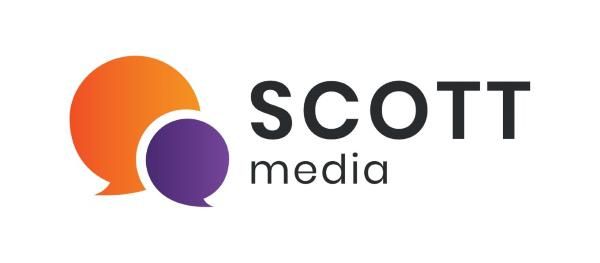TGt Meets...Mandy St John Davey, Private Landlord, Property Developer & Interior Designer - IWD Special
Today we're talking to Mandy St John Davey who is a private landlord, property developer and interior designer. She is also a professional mentor with the Princes Trust and works closely with the Welsh Government around female entrepreneurship in Wales. She is a member of, and former UK chair, of the campaigning group Women In Property and was the first woman from Wales to become the UK chair.
What do you #choosetochallenge?
I #choosetochallenge all those in authority, government, schools, leaders and parents to educate young girls with financial awareness at an early age. To widen their thinking around stereo typical jobs and expand on their knowledge on careers that are not just for boys.
Thinking of your own experience in the world of business – which inequalities, if any, have you experienced personally or witnessed around gender?
I have encountered a few inequalities over my career, especially in my younger days. One in particular springs to mind, working for a large organisation I was turned down for a company car when my male counterpart had been given one for doing exactly the same role/same job description. Being part of HR & training in this instance just exasperated me even more.
In those days getting a trade union in you would have thought would be the answer. It was not and I felt it was very much the old boys' club at work behind the scenes!
I wasn’t long leaving that organisation. It was a long time ago now and thankfully times have moved on and I would hope that today I would have challenged that decision more thoroughly.
Have you during your career ever challenged a situation where you felt a woman has been disadvantaged by gender?
I have been part of the campaigning organisation, Women in Property, for many years. Having been branch Chairman of the South Wales group in 2016/17, I have become National Chairman in 2019/20. So calling out and challenging inequality is always on my radar.
I sit on the National Advisory Board for Women in Property UK in a strategic role and at the same time I am also on the panel for Supporting Female Entrepreneurs in Wales. A role model for the Welsh Government and a Princes Trust Mentor so I am passionate in helping and supporting women achieve, especially in under represented sectors such as property and construction.
What do you think women offer in particular to the world of business?
Women have to juggle on many different fronts. So it is no surprise that I believe we bring a great deal of emotional intelligence into the world of business.
Many of us have a great deal of resilience, good work ethic (and are ethical) and have an honesty in business. We have the ability to collaborate with others and have good open communication skills.
Often we are critical thinkers and good at problem solving due to our multi-tasking needs with family, home commitments but above all we contribute to an estimated £115 billion into the UK’s economic growth. (Published 2018 APPG report Women in Leadership) one of the biggest reasons to support women in work and entrepreneurship going forward.
Is gender important when it comes to success in business?
No I don’t believe so. What is important is to recognise that men and women can work in different ways. It is finding an equal balance that is fair. One thing for sure is that the pandemic has highlighted and shed a light showing that we all want to live different lifestyles and that includes the way we operate our businesses.
Can you name any women in business that you admire?
I meet so many business women on my journey who I admire immensely so it's difficult to just mention three. However today is about celebrating women and so I will mention those who I admire in my immediate network.
Sandi Rhys Jones OBE - Sandi inspires me every day to be better than I was yesterday. An incredible mentor and powerhouse of experience there is nothing Sandi hasn’t faced in her career. She is a passionate advocate for the construction and engineering industry, and in particular the role of women, always on the end of the phone or email to help, the first with encouragement and a congratulatory flag waving.
With 40 years’ experience in strategic marketing and management, communications and training for technical, professional and business to business organisations in the engineering and construction sectors Sandi supports and inspires many women in the industry, that I am sure of.
Nicola Jones, Project Manager, Gleeds - Nicola is a proud mum and grandmother but also a project manager and was one of a few women working in construction during the pandemic.
Nicola works alongside health boards and trusts to facilitate areas within live hospitals, sports arenas and exhibition centres to provide beds to care for those who need hospitalisation. Her dedication to her work is incredible and I admire her greatly. We all watched the news and we heard about the doctors, nurses, and carers who sadly lost their lives in this fight with COVID19 and so I admire Nicola hugely for being on the front line too in a service to help beat the pandemic.
I grew up in a multi generational household, with my mum, grandmother and great grandmother. All of them had lost their husbands due to the war, illnesses or road traffic accidents. Strong women who HAD to make ends meet and bring up families. They were not in business other than the business of survival, they taught me so much about standing on my own two feet. These are the women that I admire and inspire me today.
Can you name any men in business that you admire?
During my career both in the corporate world, freelance, and as an entrepreneur including within the “male dominated” property and construction industry, I have met some great men, leaders, mentors and confidantes.
Therefore, I celebrate and admire all those men out there who are actively supporting and promoting their female counterparts as they so often do every day.
Do you think women who start their own business experience face more challenges than men?
The under representation of women in business in the UK, both as business owners and senior managers, is well documented. The gender gap in entrepreneurship for example means that women are not achieving their full economic potential.
Gender differences, namely education, experience, networks and access to capital, have an effect on the ways in which men and women approach and practice entrepreneurship. Women face difficulties and obstacles in maintaining businesses, including unfavourable business regulations, networking opportunities that favour men and less access to finance.
As women represent a large demographic I believe targeting business support services can have a notable impact and help create an environment where we as under-represented group can also thrive. If we are to address this we must start by:
- Improving engagement with potential women entrepreneurs to better understand their individual barriers that prevent participation in business start-up activity.
- Tailor business support services to ensure they are gender aware and focussed to meet the specific needs of women entrepreneurs, recognising their different characteristics, culture and circumstances.
- Increase the availability of women business advisors and mentors.
- Improve information on the availability of finance for women entrepreneurs, and more importantly ensure there are no unnecessary restrictions to the awarding of finance.
- Recognise and promote the success of women entrepreneurs as role models to others.
- Improve access to business support information sources and encourage networking between women entrepreneurs and the wider business community.
- Provide tailored, practical pre-start business support that encourages and supports women to build their self-confidence.
- Engage with young women to promote and develop entrepreneurial attitudes, with particular emphasis on the education system.
- Ensure that business awards actively encourage both recognition of women and ensure that there is a gender balanced panel and judging criteria.
If we are to move forward at all we must also move away from past thinking and flakiness in regards to part time and home-working, and stop viewing women’s businesses as pocket money income in supporting roles.
What do you think about the gender pay gap?
This is a huge topic on its own and I should state right here that financial awareness should start at school age, educating girls to become financially savy.
Men and women’s approaches to money, risk and financial planning differ. Many of us women find managing finance complicated. But also a women’s financial life journey differs to a man’s and is often more complex.
So we need to do more to empower women and girls to engage in their financial futures and to equip them to make informed decisions that reflect their financial life journeys. We need to help women to learn to become more confident, so asking for pay rises becomes their norm and continue to challenge if they are unfairly treated.
Right now according to the government, enforcement during the pandemic has ceased and only one third of companies have reported this year in comparison with other years. It is important that all companies publish their gender pay gap stats and that we have full transparency.
I would also say that whilst slow progress is being been made on pay gap reporting and efforts to reduce the gap, we underestimate the important issue that is still largely ignored - the gender pensions gap.
Research by Prospect found that the gender pensions gap – the percentage difference in pension income for female pensioners compared to male pensioners – was 40.3% in 2018-19.
This is more than twice the gender pay gap of 17.3% in 2019 and represents an average difference in pension income by gender of about £7,500 a year. Alarming!
It is also highlighted that pre-pandemic women’s life-time earnings were just 59% of men’s - a result of the gender pay gap, motherhood and caring, as well as financial imbalances in relationships and break-ups - leading to a gender pension gap at retirement of 5:1 male: female.
What do you think about the International Women’s Day movement?
Yes, I do think IWD is necessary because of the women who have gone before us to fight for the rights women have today and so on the shoulders of those women we stand.
We still are not there and there is a lot more to do.
I think International Women’s Day is also a celebration, a celebration of how far we have come and to recognise the great achievements of women and the strides they have made, all around the world. It is so important, we “recognise and promote the success of women entrepreneurs as role models to others” and International Women’s Day is a great way to do this.
And finally:
I attended a virtual event recently where one of the speakers made me sit up in my seat. About the rights for women, gender pay gap, working from home, flexible work and so on. I would like to share it and leave you with the same thought experiment on women’s rights:
- “What if I was to tell you all of this was your fault?”
- “What if we don’t have time to change the minds of those who will listen and agree?”
- “If this really was on my shoulders, how would I behave tomorrow?”
I think we would see much more concerted action taken on and at the centre of business strategy. The truth to collect the data, visualising a different reality and building a plan of action to get there.
I don’t think we can all stay in our lanes and ignore things we could be doing more to take action. And of course action is the theme of this year's International Women's Day.
Let's all have the positivity to move forward, the energy to uncover the truth, resilience to sustain hope and the passion to do anything to get there.
She can be found here - https://mandystjohndavey.com






















